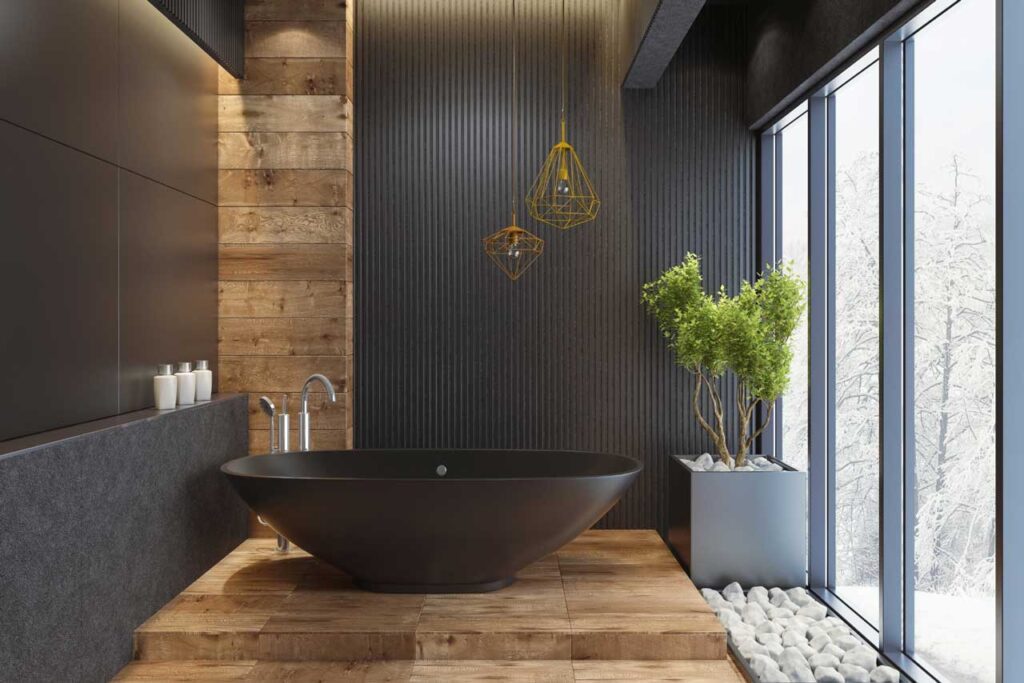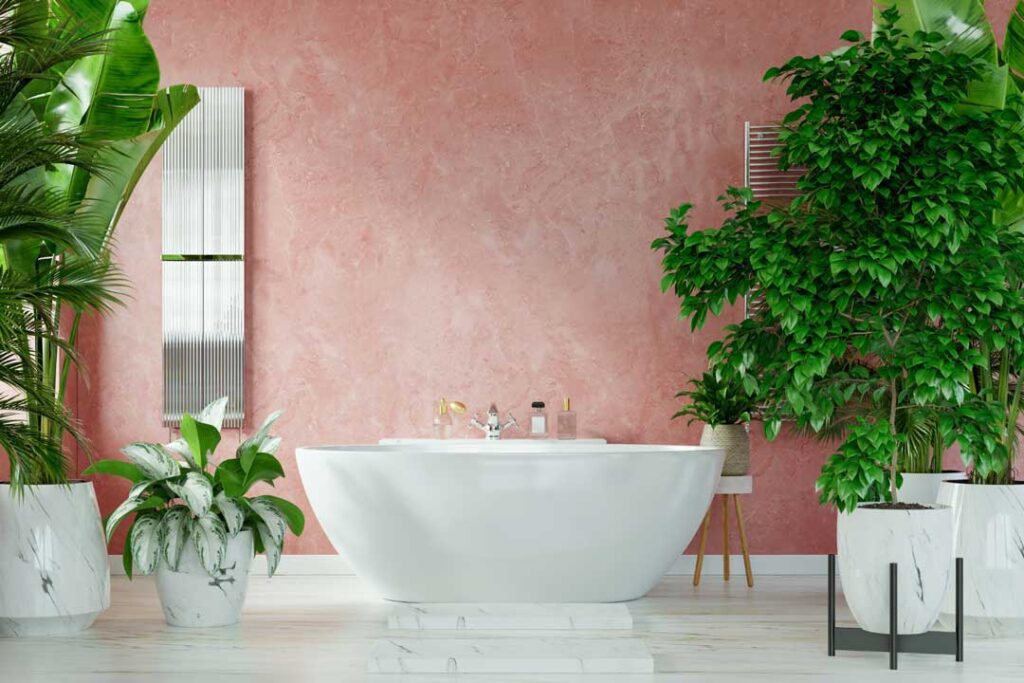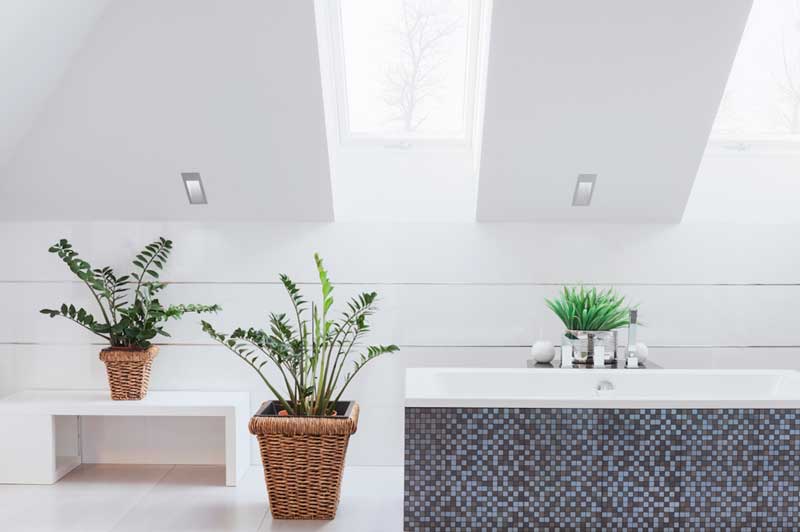There has been an unprecedented rise in awareness surrounding the concept of wellbeing in the last few years, hardly surprising given recent events, with wellness and self-care more important than ever before. In our new ‘normal’, there is increased understanding of how our surroundings play a part in our physical and mental health and, with a survey commissioned by German hotel bathroom supplier Kaldewei finding that 62% of people rate a clean and hygienic bathroom as the most important feature of a hotel, this evolving perception of wellness certainly impacts on hospitality washroom design.
As a hospitality business, the main aim is to provide a fantastic experience that will encourage people to return time and again and, in today’s customer savvy world, the last thing you need is a bad review on Google or a negative comment about an unhygienic or outdated washroom going viral on social media.

Manufacturing firm, Airdri, have compiled some human-centric hospitality washroom design inspiration for wellness and wellbeing below.
Biophilia and bringing the outdoors in
The term Biophilia, meaning ‘the passionate love of life and of all that is alive’ was first used by psychologist Erich Fromm in the sixties. Biophilic design, which incorporates elements of nature into a space by multisensory use of natural materials, colours, greenery, textures, scents and patterns, taps into our innate desire to connect with nature and has been positively linked to the health, wellbeing and mood of those within that environment.
Whilst a hospitality bathroom with a natural view of trees or water is of optimum desirability, where this is simply not an option, bringing in aspects of nature can also be achieved in a variety of different ways. Using biophilic design, whether with the organic shades and textures of wood and stone, or with wallcoverings where the subject, pattern and colour mimic those found in the natural world, can reduce anxiety and stress levels whilst also increasing the wellbeing and calmness of the user.
Plants are known to be nature’s healers so bringing botanicals into the washroom can promote feelings of serenity and have beneficial effects on psychological well-being, as well as reducing blood pressure and improving indoor air quality.

Clever use of aromatherapy is another way to bring in nature. Essential oils, extracted from flowers, leaves and fruit, have the power to tap into the human nervous system through our sense of smell, calming the senses, de-stressing and transforming the ambience of the room into a peaceful and welcoming space. Scents of lemongrass, bergamot, lemon and orange make for a bright, citrussy olfactory signature, whilst notes of eucalyptus, peppermint and lavender promote a clean, fresh ambience.
Calming colourways
Light colours are generally considered to make the bathroom feel brighter and more airy, with darker shades lending a more sophisticated ambience. Sandy neutrals, pale blues and serene greens are known to promote tranquil vibes and a soothing atmosphere, whilst nature-inspired earthy browns, soft greys and sage greens engender an organic and calming effect. Colour psychology in this instance is all about emphasising mood and enhancing a feeling of peace.

Let there be light
It’s always a great idea to amplify natural light, whether that be by adding skylights where possible or enlarging existing windows. Natural light is proven to boost wellbeing and improve mood, as well as having the power to totally transform a room depending on the time of day, the weather and the season.
Where natural light is not available in the washroom, a bright white décor and strategically placed mirrors will also help bounce light around the room. The introduction of full-spectrum or daylight light bulbs that closely mimic the spectral energy of natural daylight is another option worth considering.

Wellbeing Technology
Opting for quality technology can play a large part in boosting a hospitality venue’s wellness responsibility. The installation of innovative hand dryers, like the PureDri hybrid hand drying and sanitising system from Airdri, can play a pivotal role in enhancing the washroom’s hygiene standards and sustainable practices, providing a unique triple action defence against the spread of bacteria, mould, viruses and odours.
PureDri works to continuously maintain an environment that is hostile to pathogens by creating and distributing a sanitising plasma into the air and onto surfaces. It also provides individual user protection by focusing plasma both around the user and onto hands in a focused 6 second blast at the end of the hand drying cycle, reducing bacteria that may not have been removed by hand washing by a further 11%.
Airdri’s SteraSpace sanitisation technology effectively and continuously eliminates harmful pathogens, even in washrooms with poor ventilation that are under constant use. The units work to continually remove airborne and surface pathogens by sanitising surrounding air and exposed surfaces, therefore significantly reducing the opportunity for transmission of viruses, including seasonal colds and flu as well as other illnesses.
The units combine Photo Catalytic Disinfection (PCD), Germicidal Irradiation and Dual Waveband UV technology to create the most advanced virus and bacteria control technology of its kind. This offers a unique and highly effective way to eliminate bacteria, mould, yeasts, viruses, allergens, and harmful VOCs to result in clean, healthy air and surfaces in the workplace.
By combining these three advanced technologies, a continuous flow of disinfecting plasma is released into the air, eliminating 98.11% of airborne and 99.6% of surface micro-organisms in under sixty minutes.










